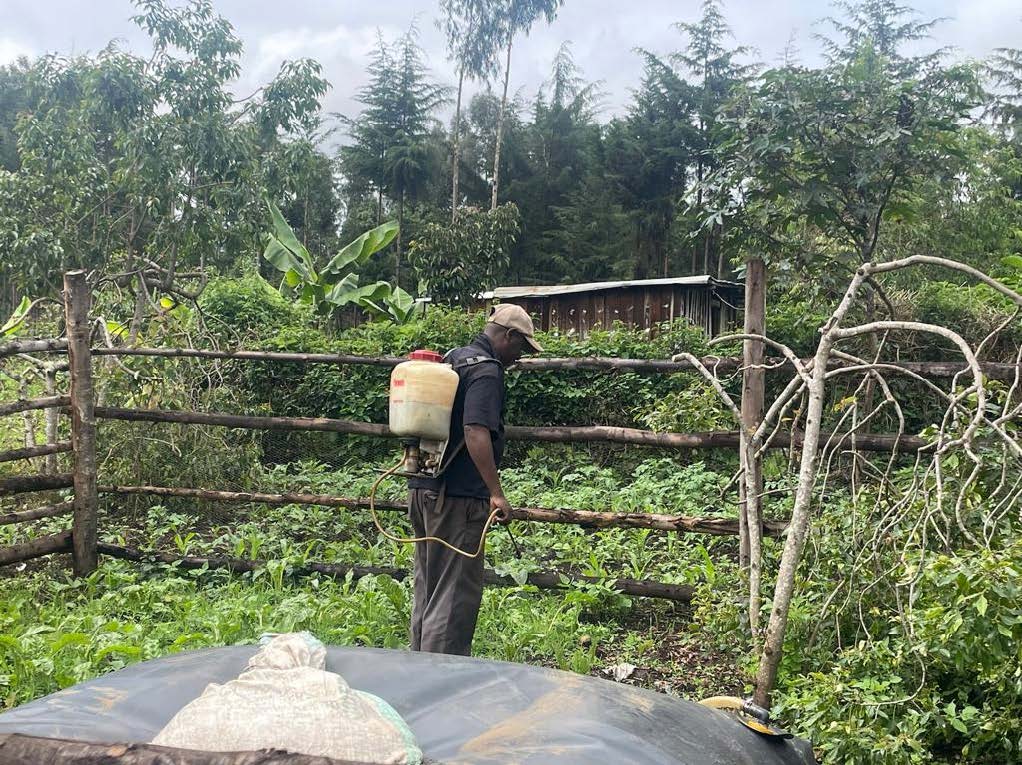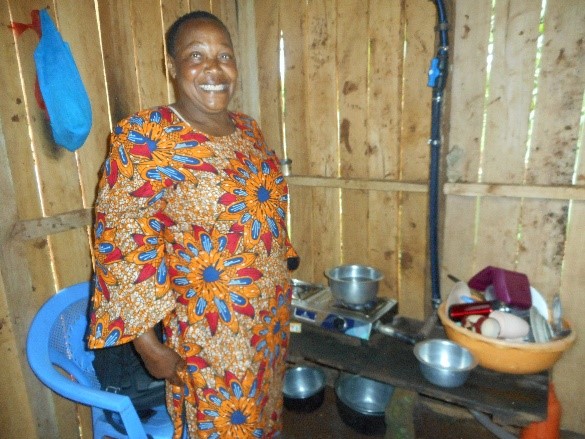
In many rural communities around the world, farmer households lack access to clean cooking energy sources. Burning solid fuels like wood or coal indoors can lead to serious health effects, like burns and respiratory damage. Women are traditionally responsible for cooking and, therefore, are disproportionately at risk for these ill effects.
Additionally, many smallholder farmers lack access to organic fertilizer, which is essential for soil health and crop productivity. While some farmers have manure from livestock, this raw material does not have the same positive effects as organic fertilizers. Both the lack of clean cooking energy sources and organic fertilizer have a negative impact on farmer livelihoods.
These problems are particularly acute in East Africa, where Root Capital works with 82 agricultural enterprises. Our clients recognized the need for organic fertilizer and clean cooking energy sources, along with the negative health effects of traditional cooking methods that disproportionately affect women in their communities. It left them wondering “could there be a technology that could solve both of these (seemingly unrelated) challenges?”
Repurposing Waste Into Organic Fertilizer and Clean Cooking Fuels
The solution to our clients’ challenges can be found in an unlikely place: waste. Untreated biological waste-from animals or crops-can cause disease, create pollution, and is generally unpleasant to live near. But with the proper treatment and technology, organic waste has the potential to supply households with organic fertilizer and clean cooking energy. This allows women in rural communities to avoid dangerous health conditions associated with indoor cooking fires, and saves significant time and money.
In 2023, Root Capital partnered with a climate technology provider, Sistema.bio, on an innovative biodigester pilot. Sistema.bio manufactures and sells biodigester systems, which are prefabricated, modular containers that turn farm waste into methane-rich “biogas” and organic “biofertilizer.” Farmers put animal manure (generally from pigs or cows) into a covered, water-filled tank where microorganisms digest the waste. Methane then builds up in the oxygen-free environment of the tank and flows into a separate compartment. The resulting biogas and biofertilizer have myriad uses:
- Biogas, also known as biomethane, can be used for cooking or farm production activities (like operating a tractor or powering a household stove).
- Biofertilizer is an organic liquid fertilizer that can be used as a household garden fertilizer or as part of compost production.
By utilizing environmentally responsible solutions, our clients act as scaling agents for climate technology, influencing neighbors who can see the positive effects. Smallholder farmers are on the front lines of climate change, and biodigesters are part of a multi-pronged approach. Not only do biodigesters create a sustainable solution for dealing with waste, they also reduce greenhouse gas emissions while improving farmer livelihoods.

An infographic explaining the science behind biodigester systems. Credit: Sistema.bio.
Our pilot involved partnering with two macadamia nut processing clients in Kenya. The initial cost of the biodigesters were funded by two resilience grants provided by Root Capital. The macadamia processors used the grants to finance biodigesters for farmer suppliers, many of whom cannot afford to purchase the units outright. As of May 2024, Root Capital has funded around 30 biodigester units. Sistema.bio then uses its monitoring and registration systems to track the performance and impact of the units over time. These biodigesters contribute to carbon credit projects managed by Sistema.bio and certified by the Gold Standard, which is a best practice standard to quantify, certify, and maximize impact on climate action and the sustainable development goals.
Early Signs of Positive Impact
The purpose of this pilot was to generate a renewable energy source, promote suitable waste management, boost organic manure production, and improve the health and living standards of participants, particularly women. Sistema.bio has provided preliminary data from the pilot indicating that biodigester technology has met all these criteria.
Based on Sistema.bio’s monitoring reports, the installed biodigesters have made a verifiable impact in time and money savings. Before the biodigester installation, rural families either had to spend significant time sourcing firewood for indoor cooking fires (on average, two hours per day), or they had to pay expensive prices. Participating clients spent an average of 4,050 KSh (equivalent to $30) per month on petroleum gas prior to installation. Now, these households spend an average of 1,479 KSh (equivalent to about $11)-constituting a 60 percent saving in monthly fuel costs for participating farmers! We expect farmers to save even more once they account for replacing expensive fertilizer, yet another savings for farming families that struggled to afford expensive materials.

A Kenyan smallholder macadamia nut farmer proudly shows off her “new” clean cooking gas system thanks to her two dairy cows and biodigester system in Kenya. Credit: Root Capital.
Before the installation and usage of this biogas system, I used to cough with a congested chest all the time. But now with biogas, I’m enjoying life like a queen! Even the food is not smelling [like] smoke like before!
-A Kenyan smallholder macadamia nut farmer
Another environmental implication is that animal manure emits harmful methane and carbon into the atmosphere. When this organic matter is instead fed to the biodigester, Sistema.bio reports that 84 percent of farmers report NO smell of manure, with the remaining 16 percent reporting only a light smell. This improves the day-to-day quality of life in agricultural communities while simultaneously reducing greenhouse gas emissions associated with livestock management.
Bringing Climate Technology to More Businesses and Farmers
Based on the early success of the biodigester pilot in Kenya, we are planning to replicate this initiative in Colombia and Uganda. We’re excited to continue our climate-smart technology work and partner with agricultural enterprises to explore more innovative climate solutions for rural communities.

